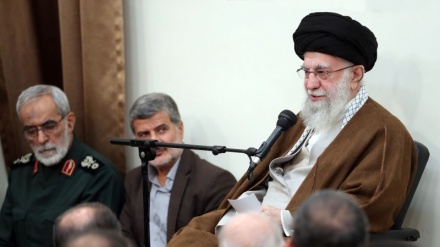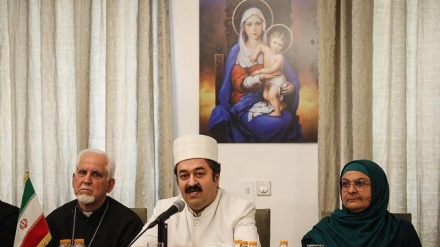Is Gaza uniting justice-seekers around the world?
-

Is Gaza uniting justice seekers around the world?
Pars Today - According to Ramzy Baroud, solidarity with Palestinians is not based on religious, racial, geographical, or cultural boundaries, but rather on global justice.
The article "Civilizational Unity, Not Clash: How Gaza Challenged Samuel Huntington's Fantasies" by Ramzy Baroud examines recent developments in Gaza and their global repercussions, criticizing and analyzing Huntington's "Clash of Civilizations" theory and emphasizing fundamental changes in identities and international relations.
Fluid identity and historical changes
The author refers to the continuous changes in identities and political maps throughout history, particularly in the Roman Empire, showing that identities have always been changing. He argues that wars, conflicts, and cultural developments have played a significant role in redefining identities, which can be observed in the constant changes in political borders and remapping throughout history.
Cultural influence and globalization
Baroud points to the cultural influence of the United States and Britain after the Cold War. He believe that this influence has disrupted the natural cultural development of various societies. He highlights the role of the English language as a primary means of communication and the influence of Western entertainment in different societies, introducing these changes as factors that have widened the generation gap and redefined social values and priorities.
Criticizing the Clash of Civilizations theory
Ramzi Baroud criticizes the 'Clash of Civilizations' theory proposed by Samuel Huntington. Huntington believed that the world is divided into 'great civilizations' whose relationships are defined by conflicts. Baroud introduces this theory as a redefinition of racist clichés and a political tool that was promoted after the collapse of the Soviet Union and following the first Iraq War and Western militarism.
He believes that these theories have been guided by political necessities and have failed to achieve their desired outcome for the West, namely, maintaining the world as a hostage.
The emergence of a new world
The author emphasizes the emergence of a new world that is not based on civilizational searches, but rather on the old historical pattern: those seeking power to expand and protect their economic interests, and those fighting for freedom, justice, and equality. Baroud argues that these patterns are beyond civilizational, religious, racial, and geographical boundaries, and that great powers are also uniting in this process.
The Gaza war and global unity
Baroud refers to the Gaza war as a point of global unity that has led to the formation of a new identity in international relations. He argues that solidarity with Palestinians is not based on religious, racial, geographical, or cultural boundaries, but rather on global justice. This solidarity is observed in widespread global protests, from Europe to North America and from Africa to Latin America, where people of all colors, races, ages, genders, and religions have united.
Conclusion
Ramzy Baroud concludes by highlighting the importance of global resistance against political and economic divisions, and believes that the Gaza war has shown that it is possible to go beyond identities and civilizations and unite for global justice. This poses a serious challenge to the Clash of Civilizations theory and traditional concepts of power and identity in international relations.
This analysis demonstrates that in today's world, relationships and identities are much more complex and fluid than what old theories like the Clash of Civilizations imagine, and we need new approaches to understand and analyze global relations.
Source: Baroud, Ramzy. 2024. Civilizational Unity, Not Clash: How Gaza Challenged Samuel Huntington’s Fantasies
MG
Key phrases: Gaza war, Clash of Civilizations theory, Samuel Huntington, global justice


